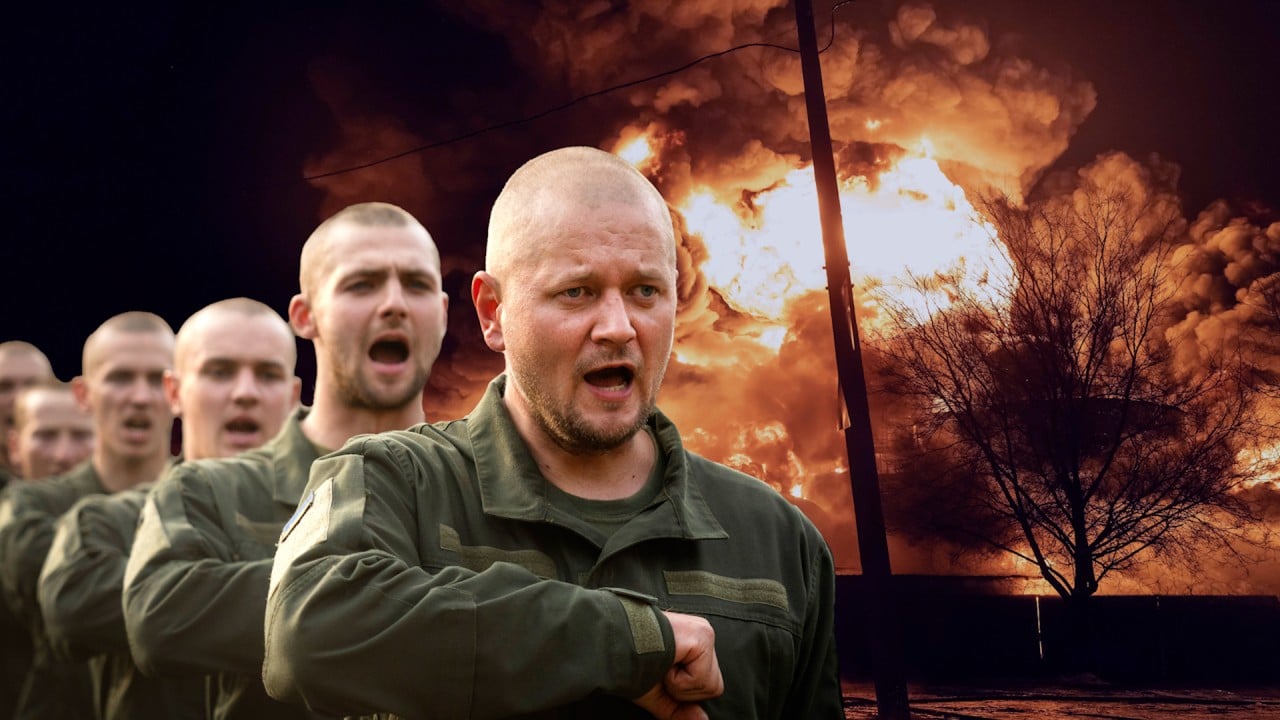Shortages of munitions, he said, meant “you have to do with less. How? Of course, to go back. Make the frontline shorter. If it breaks, the Russians could go to the big cities.”
Democratic President Joe Biden has urged the Republican-controlled US House of Representatives to endorse the military and financial aid package, but House Speaker Mike Johnson has held up the matter for months, citing domestic priorities.
Zelensky told Johnson in a telephone conversation on Thursday that approval of the package was vital.
Russia to begin military draft amid mobilisation fears of new Ukraine offensive
Russia to begin military draft amid mobilisation fears of new Ukraine offensive
Russian forces captured the eastern town of Avdiivka last month and have made small gains since, but the frontlines have changed little in months.
In his interview, the Ukrainian president said Ukraine was making up for shortages of missiles with home-produced weaponry and air defence systems, “but it is not enough”.
More than two years into the war, Russia has intensified attacks on energy and other infrastructure in recent weeks. Ukrainian troops have been unable to advance, and Zelensky said Kyiv intended to pursue attacks on targets in Russia, including oil refineries.
He said Washington’s reaction to the wave of Ukrainian attacks was “not positive”, but Kyiv was using its own drones.
“We used our drones. Nobody can say to us you can’t,” he told the newspaper. If there is no air defence to protect our energy system and Russians attack it, my question is: Why can’t we answer them?” he said.
“Their society has to learn to live without petrol, without diesel, without electricity. When Russia will stop these steps, we will stop.”
Meanwhile, massive Russian missile and drone attacks hit thermal and hydro power plants in central and western Ukraine overnight, officials said on Friday.
Kaniv hydropower plant was among the targets along with Dniester plant, which is located on the Dnister River, flowing through neighbouring Moldova, Volodymyr Zelensky said.
“The terrorist state of Russia wishes to repeat the ecological disaster in the Kherson region following Russia’s destruction of the Kakhovka HPP (blown up by Russian forces last year). This time, not only Ukraine but also Moldova are at risk,” he said on X (formerly Twitter).
Last week, Russia also hit Ukraine’s largest dam, the DniproHES in the southern Zaporizhzhia region, eight times during a massive overnight attack.
A senior official at the Centrenergo generating company reported that the 10-unit Zmiivska thermal plant in northeastern Kharkiv region, an area subject to many Russian attacks, had been destroyed in a big wave of strikes on March 22.
“The consequences were destructive, the station is destroyed,” Andriy Hota, chairman of the company’s supervisory board told Interfax Ukraine news agency.
“There were many direct hits. Everything we repaired in preparation for the winter was destroyed.”
Putin says nuclear-capable F-16 jets won’t change course of Ukraine war
Putin says nuclear-capable F-16 jets won’t change course of Ukraine war
The wave of attacks on March 22 was described by Kyiv officials as the most intense since the February 2022 invasion.
Regional officials said Russian forces had also attacked infrastructure overnight into Friday in the Kamianske district near the city of Dnipro. At least one person was wounded.
Ukrainian energy minister German Galushchenko said power facilities in the regions of Dnipropetrovsk, Poltava and Cherkasy had similarly come under attack.
“Electricity generation facilities were targeted by drones and missiles,” Gelushchenko said on Facebook.
Prime Minister Denys Shmyhal said energy facilities in total of six regions had been damaged.
“Again, the attack was directed both against electricity generation facilities and against its distribution system,” he added.
Power grid operator Ukrenergo said on Telegram it had to apply power cuts schedules up till the evening in three regions – Dnipropetrovsk, Zaporizhzhia and Kirovohrad.
The largest private power firm, DTEK, said its three thermal power plants had come under attack on Friday, and equipment was severely damaged.
“Attacks destroyed half of DTEK’s available generating capacity. Five of the six DTEK power stations that had been operating prior to this week have now sustained serious damage,” it said in a statement.
It added that Russian strikes on energy facilities were becoming more “accurate and concentrated”.


